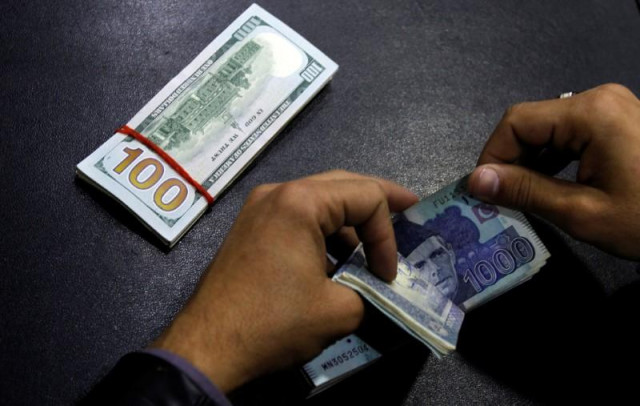Overseas Pakistanis remit $13.3bn in Jul-Jan FY20
Remittances increase as expatriate Pakistanis utilise legal channels

PHOTO: REUTERS
Overseas Pakistanis remitted $13.30 billion in first seven months (Jul-Jan) of current fiscal year, which was 4% higher than the $12.77 billion received in the same period of last year, the State
Bank of Pakistan (SBP) reported on Wednesday. Alone in January, the remittances increased 9% to $1.9 billion compared to $1.74 billion in the same month of previous year, it added.
“Overall, a continued growth trend is now emerging in remittance inflows,” Arif Habib Limited Head of Research Samiullah Tariq told The Express Tribune.
Remittances from two leading Western countries - the US and the UK - were rising continuously since Pakistan was implementing anti-money laundering (AML) and combating financing of terrorism (CFT) rules of the global financial transaction watchdog - the FATF, he said.
Remittances from the US and the UK grew 11% and 6% respectively and cumulatively accounted for over 32% of the total remittances of $13.30 billion in first seven months of current fiscal year 2019-20.
On the other hand, the growth in remittances from Saudi Arabia and the UAE, which were the top two countries in terms of remittances, slowed down.
“The two oil-producing and exporting countries are facing economic headwinds since international oil prices have failed to maintain the uptrend in recent months,” Tariq said. “The situation has impacted the growth in remittances to Pakistan, though most of the expatriate Pakistanis reside in the two Middle Eastern nations.”
Appointment of CPEC Authority CEO ‘blocked’
Economist Dr Shahid Hasan Siddiqui criticised the Pakistan Tehreek-e-Insaf (PTI) government for utilising remittances to finance the huge trade deficit.
“Had the government invested remittances in different sectors of the economy like export-oriented industries (such as textile and others), the economic growth would have been hovering around 8% (compared to the nine-year low growth of 3.3% in the previous fiscal year),” he said.
Siddiqui was of the view that the government should have adopted the strategy of increasing exports rather than decreasing imports to fix the faltering economy.
Besides, he expressed doubt whether the growth in remittances was natural or it came through dubious ways. “The (previous) government had found suspicious remittance transactions. How can a driver send over a million dollars in wages back home in a year?” he said. People send outward remittances through illegal channels of hawala/hundi to settle accounts of over/under-invoicing in import and export, he said. “This money is sometimes routed through home remittance channels (into Pakistan),” he said.
SBP Governor Reza Baqir said last month the overseas Pakistanis were increasingly using informal channels to send remittances to the country. “We are seeing that the use of formal channels for sending money [by expatriates] is not growing as much as the use of informal channels,” he said.
Country-wise remittances
During January 2020, the inflow of workers’ remittances from Saudi Arabia increased 7% to $433 million compared with the inflow of $404 million in January 2019.
The remittances from UAE rose 13% to $395 million in the month compared to $350 million in the same month of last year. The dispatches surged 35% from US to $335 million compared to $272 million. They improved 1% to $299 million from UK compared to $295 million.
Pakistanis dispatched 12% higher remittances at $186 million from GCC countries (including Bahrain, Kuwait, Qatar and Oman) compared to $167 million. They sent 10% higher funds from EU countries at $47 million compared to $43 million.
Remittances received from Malaysia, Norway, Switzerland, Australia, Canada, Japan and other countries during January 2020 inched down 1% to $211 million together as against $213 million received in January 2019, the central bank reported.



















COMMENTS
Comments are moderated and generally will be posted if they are on-topic and not abusive.
For more information, please see our Comments FAQ